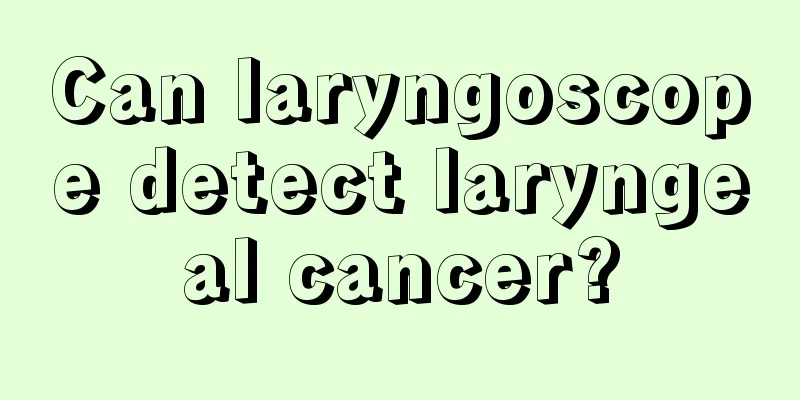Can pituitary tumors be cured? How should pituitary tumors be treated?

|
Once a tumor is detected, the first question that comes to the patient's mind is "Can it be cured?" This is understandable. The harmfulness of tumors cannot be underestimated. If it is a malignant tumor, it may cause death. Pituitary tumors are not uncommon in clinical practice and have brought great pain to patients. So, can pituitary tumors be cured? Pituitary tumors can be cured. Clinically, pituitary tumors are mainly benign tumors that occur on the pituitary gland. Treatments mainly include surgery, medication, and radiotherapy. Because no single method can achieve a complete cure, each treatment method has its own advantages and disadvantages. The treatment plan should be determined based on the size of the patient's pituitary tumor, hormone secretion, and other factors. 1. Drug treatment For pituitary prolactin-secreting tumors, more than 90% of patients can use dopamine agonists to control PRL levels and reduce the size of the tumor. Only those prolactinoma patients who are allergic or intolerant to such drugs, who have acute symptoms caused by tumor compression and need emergency surgery to relieve pressure, or who are unwilling to undergo surgical treatment, choose surgical treatment. During the treatment with bromocriptine, the dose of bromocriptine should be gradually increased until the serum PRL level drops to normal levels, and then the dose should be adjusted for long-term maintenance treatment. Regardless of the treatment, patients with growth hormone-secreting tumors should achieve the following treatment goals: eliminate the tumor, reduce tumor recurrence, achieve GH standards, relieve clinical symptoms, preserve pituitary function as much as possible, improve the patient's quality of life, and prolong the patient's life. 2. Radiotherapy Since most pituitary tumors are adenomas, they have poor sensitivity to radiotherapy. After radiotherapy, 70% to 80% of patients experience decreased pituitary function, which reduces their quality of life. Therefore, radiotherapy is only suitable for patients with surgical remnants, those who cannot tolerate surgery, those who are insensitive to drugs, or those who have comorbidities and cannot undergo surgery or drug treatment. 3. Surgical treatment At present, the treatment of pituitary tumors is still mainly surgery, supplemented by drug therapy and radiotherapy. Pituitary tumors are located in the sellar region, surrounded by important nerve structures such as the optic nerve, internal carotid artery, and hypothalamus, so surgery still has certain risks. The current surgical methods include transsphenoidal, craniotomy, and gamma knife. Pituitary tumor surgery can affect the posterior pituitary gland, which can easily lead to insufficient secretion of posterior pituitary hormone after surgery, which can lead to increased urine volume and even diabetes insipidus. Other complications include hypothalamic reaction, optic nerve damage, cerebrospinal fluid leakage, etc. Recurrence is still possible, so regular follow-up is required. |
<<: What are the symptoms of pituitary tumors? What should I do if I have a pituitary tumor?
Recommend
How far can an average person jump in triple jump
I believe everyone has seen triple jump in life. ...
Cluster migraine treatment, it turns out these methods are the most effective
Cluster migraine is the most severe of all pain s...
How to make brown sugar honey mask
Everyone loves beauty, and it is women's natu...
Is it good to always cupping
Because of sudden weather changes, or their own b...
Can patting the inside of your arms help detoxify?
Patting the inside of your arms will not detoxify...
How long can you live after colon cancer surgery
Surgery has always been believed to be an effecti...
Are the symptoms of blood deficiency and insomnia serious?
Some people often suffer from insomnia and cannot...
What are the symptoms of a fast metabolism? Do you have these three points?
I had eaten a full meal in the morning, but soon ...
Is there a relationship between moles and skin cancer?
Most people can find moles on their bodies, but t...
Is osteosarcoma carbuncle useful?
Osteosarcoma is a type of disease that can occur ...
Can drinking pure milk every day help you grow taller? And what should you pay attention to?
Many people have the habit of drinking pure milk ...
How much does nasopharyngeal cancer surgery cost?
The cost of nasopharyngeal carcinoma treatment va...
Extrapulmonary manifestations caused by non-lung cancer metastasis
Extrapulmonary manifestations caused by non-lung ...
Is it good to sleep with the air conditioner on at night?
Air conditioning can be said to be a must-have fo...
Is mutton a spicy food?
Mutton is a warm food. Eating more mutton in wint...









